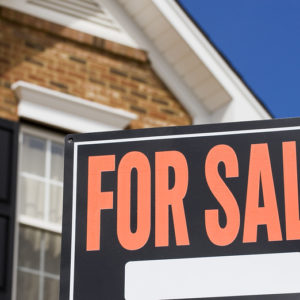In a recent NHJournal podcast interview, Matt Mayberry with the New Hampshire Homebuilders Association was asked, “If you had a magic wand and could get the legislature to pass one law to address the state’s housing shortage, what would it be?”
Mayberry didn’t hesitate: “It’s called One State, One Code.”
On Thursday, Mayberry may move one step closer to getting his wish.
The state Senate is set to vote on HB 428, legislation that would prohibit local governments from making any new changes to the state building codes. The legislation, with some administrative amendments, has passed the House and received an “Ought To Pass” recommendation from the Senate Executive Departments and Administration Committee.
The bill is one of several the Senate is scheduled to consider on Thursday that are designed to address the state’s acute housing shortage.
On Tuesday, Mayberry was in Meredith participating in a roundtable on housing policy hosted by Americans for Prosperity–New Hampshire, along with the chairman of the House Committee on Housing, Rep. Joe Alexander (R-Goffstown).
Polls consistently show that the lack of affordable housing is the hottest topic for Granite State voters. But AFP’s Greg Moore, who emceed the event, said he didn’t want to call it a “housing crisis.”
“I usually don’t like that phrase, because it seems that the word ‘crisis’ is slapped onto whatever the issue of the day is: the debt limit ‘crisis,’ the DOGE ‘crisis,’ whatever.”
Mayberry had a different take.
“A challenge is when your neighbor’s kid can’t find a place to rent,” Mayberry said. “It’s a crisis when your child can’t find one.”
Alexander, who is 30, put the current housing market in context by asking the (much older) audience a question:
“How many of you in the 1980s were able to buy a house for $100,000, $120,000 — maybe even less? Raise your hand. Today, I toured a tiny house manufacturing facility — beautiful state-of-the-art homes, 170 square feet — the ticket price is $100,000.”
Alexander told the gathering that most of the friends he grew up with have moved out of the Granite State, and the lack of access to affordable housing is a major factor. He’s the prime sponsor of the One State, One Code legislation, which would keep homebuilders from having to navigate different code requirements in different communities. It would also make life easier for workers in the trades, who won’t have to track down different code requirements when they move on from one construction project to another.
Another way to help young people find housing in New Hampshire is to let more homeowners build accessory dwelling units (ADUs).
An ADU is residential housing either within or attached to a single-family home that can be used as an independent unit of housing. The Senate is expected to vote on HB 577, giving property owners the right to build ADUs if they choose — even if the local government doesn’t like it.
“If they (the Senate) pass it on Thursday, it’s going to be law that you have a right to build an ADU on your property. That’s it. Full stop,” Alexander said, “And that’s going to prohibit these towns from getting in the way.”
The debate over how much control the state should have in regulating zoning vs local governments hangs over the housing debate. Supporters of the legislation before the Senate Thursday say “local control” is just a euphemism for “NIMBY” (Not In My Back Yard”) and is an excuse towns use to limit the rights of local property owners.
Moore says complaints that allowing a surge in housing construction would “turn New Hampshire into Massachusetts” aren’t backed by the data, such as population density.
“Here in New Hampshire, we have 157 people for every square mile,” he told the audience. “Does anyone know what the population density of Massachusetts is? Nine hundred per square mile. It’s literally six times as much.”
And there’s another New Hampshire value at play, Mayberry said: freedom.
“This is about your private property. That’s about what you should be able to do with your land within the law.”





